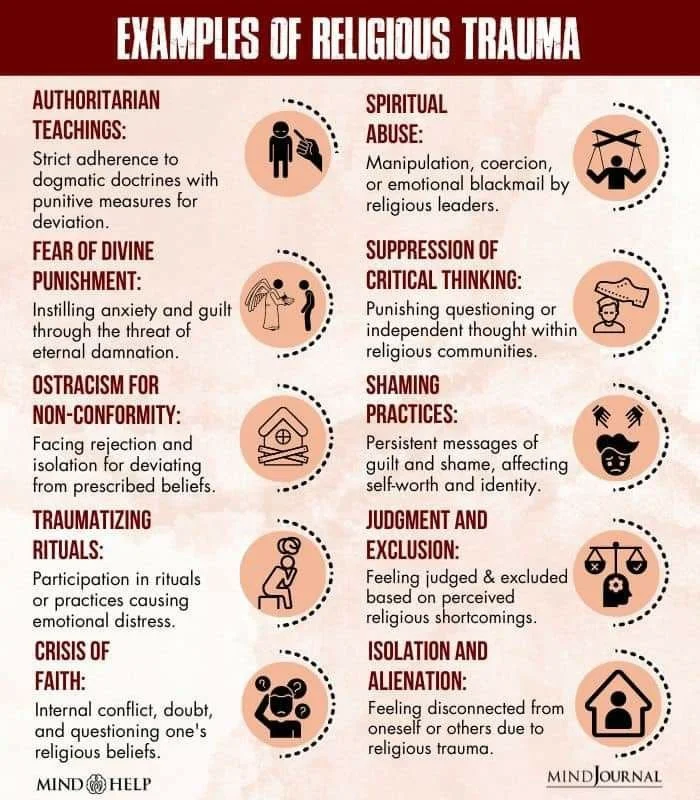When Faith Hurts: Understanding Religious Trauma
Faith can be a source of deep comfort, connection, and healing. But for many, it has also been a source of pain. Religious trauma is a reality that countless individuals carry—often silently—because talking about it can feel like betrayal, guilt, or fear of judgment.
The truth is: religion, like any system, can be misused. When beliefs are distorted into tools of fear, control, or shame, the impact can be long-lasting on mental, emotional, and even physical health.
What Religious Trauma Can Look Like
Authoritarian Teachings: Strict, punitive doctrines that leave no room for individuality or questioning.
Fear of Divine Punishment: Living with constant anxiety that God is waiting to punish every mistake.
Ostracism for Non-Conformity: Being rejected or isolated for asking questions or believing differently.
Traumatizing Rituals: Practices that cause emotional distress rather than peace or growth.
Crisis of Faith: Wrestling with doubt, conflict, and fear of losing one’s spiritual foundation.
Spiritual Abuse: Manipulation, coercion, or emotional blackmail by leaders or religious figures.
Suppression of Critical Thinking: Being told not to question, not to think, not to seek.
Shaming Practices: Persistent guilt messages that erode identity and self-worth.
Judgment and Exclusion: Feeling unworthy, “less than,” or unloved because of perceived spiritual failings.
Isolation and Alienation: Disconnection from others—or even from oneself—because of spiritual wounds.
The Mental Health Impact
Religious trauma often mirrors symptoms seen in other forms of trauma:
Anxiety and panic
Depression and hopelessness
Difficulty trusting oneself or others
Identity confusion
Complex grief and shame
For many, the hardest part is untangling what is truly spiritual from what was imposed through fear or manipulation. Healing means learning to separate the voice of love, grace, and compassion from the voices of shame, guilt, and fear.
Healing From Religious Trauma
Name it: Acknowledge the pain as valid. Religious trauma is real.
Seek safe spaces: Find supportive communities or therapists who understand religious trauma.
Reclaim your voice: Allow yourself to question, process, and rebuild your beliefs without fear.
Practice self-compassion: Healing takes time—be patient with yourself.
Faith should never be used as a weapon. If your experience of religion has left wounds, know this: your healing matters, your questions are valid, and your worth is not defined by shame.
If you are struggling with the weight of religious trauma, counseling can provide a safe and supportive space to begin the journey of healing.
📩 To schedule an appointment, reach out today at jessica@restorationcounselingdsm.com


